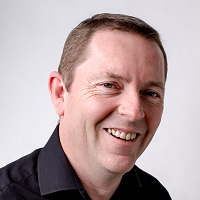A woman walks up to the security guards outside a shuttered USAID-funded sexual health clinic in Johannesburg's inner-city district.
She looks around with confusion as they let her know the clinic is closed.
She tells us it has only been two months since she came here to receive her usual care.
Now, she must scramble to find another safe place for her sexual health screenings and Pre-Exposure Prophylaxis (PrEP) - her regular defence against rampant HIV.
On the day he was sworn in as US president for a second time, Donald Trump signed an executive order freezing foreign aid for a 90-day period.
That is being challenged by federal employee unions in court over what it says are "unconstitutional and illegal actions" that have created a "global humanitarian crisis".
However the order is already having an immediate impact on South Africa's most vulnerable.
Her eyes tear up as she processes the news. Like many sex workers in town, free sexual health clinics are her lifeline.
A HIV-positive sex worker shared her patient transfer letter from the same closed clinic with Sky News and told us with panic that she is still waiting to be registered at an alternative facility.
South Africa is home to one of the world's worst HIV/AIDS epidemics. At least 8.5 million people here are living with HIV - a quarter of all cases worldwide.
Widespread, free access to antiretroviral treatment in southern Africa was propelled by the introduction of George W. Bush's US President Emergency Plan for AIDS Relief (PEPFAR) in 2003.
PEPFAR is considered one of the most successful foreign aid programmes in history, and South Africa is the largest recipient of its funds.
The programme has now been halted by President Trump's foreign aid funding freeze - plunging those who survived South Africa's HIV epidemic and AIDS denialism in the early 2000s back to a time of scarcity and fear.
"That time, there was no medication. The government would tell us to take beetroot and garlic. It was very difficult for the government to give us treatment but we fought very hard to win this battle. Now, the challenge is that we are going back to the struggle," says Nelly Zulu, an activist and mother living with HIV in Soweto.
Nelly says access to free treatment has saved her and her 21-year-old son, who tested positive for HIV at four years old.
"It helped me so much because if I didn't get the treatment, I don't think I would be alive - even my son.
"My concern is for pregnant women. I don't want them to go through what I went through - the life I was facing before. I'm scared we will go back to that crisis."
South African civil society organisations have written a joint open letter calling for their government to provide a coordinated response to address the healthcare emergency created by the US foreign aid freeze.
The letter states that close to a million patients living with HIV have been directly impacted by stop-work orders and that a recent waiver by US Secretary of State Marco Rubio continuing life-saving assistance explicitly excludes "activities that involve abortions, family planning, gender or diversity, equality and inclusion ideology programmes, transgender surgeries or other non-life saving assistance".
The shuttered clinic we saw in Johannesburg's central business district (CBD) comes under these categories - built by Witwatersrand University to research reproductive health and cater to vulnerable and marginalised communities.
An activist and healthcare worker at a transgender clinic tells us everyone she knows is utterly afraid.
"Corner to corner, you hear people talking about this. There are people living with chronic diseases who don't have faith anymore because they don't know where they are ending up," says Ambrose, a healthcare worker and activist.
"People keep asking corner to corner - 'why don't you go here, why don't you go there?' People are crying - they want to be assisted."
South Africa's ministry of health insists that only 17% of all HIV/AIDs funding comes from PEPFAR but that statistic is offset by the palpable disruption.
On Monday, minister of health Dr Aaron Motsoaledi met to discuss bilateral health cooperation and new US policy for assistance with US charge d'affaires for South Africa, Dana Brown.
A statement following the meeting says: "Communication channels are open between the Ministry and the Embassy, and we continue to discuss our life-saving health partnership moving forward.
"Until details are available the minister called on all persons on antiretrovirals (ARVs) to under no circumstances stop this life-saving treatment."
A demand much harder to execute than declare.
"There is already a shortage of the medication - even if you ask for three months' treatment, they will give you one or two months worth then you have to go back," says Nelly.
"Now, it is worse because you can see the funding has been cut off."

(c) Sky News 2025: USAID crisis leaves South Africans living with HIV in turmoil


 'She changed everything': Cancer nurse struck off after 'financially grooming' patient
'She changed everything': Cancer nurse struck off after 'financially grooming' patient
 Search under way in Alaska for missing Bering Air plane carrying 10 people
Search under way in Alaska for missing Bering Air plane carrying 10 people
 TV chef Gino D'Acampo denies dozens of allegations of inappropriate behaviour
TV chef Gino D'Acampo denies dozens of allegations of inappropriate behaviour
 UK weather: Cold snap on the way as temperatures set to plummet to -7C and health alerts issued
UK weather: Cold snap on the way as temperatures set to plummet to -7C and health alerts issued
